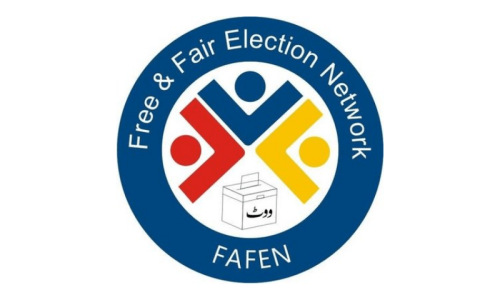A FRESH tide of terrorism across the country has prompted the military leadership to deliberate on this critical security issue. Heading his first corps commanders’ conference on Wednesday, the new army chief, along with his top generals, vowed to crack down on terrorism “without any distinction”. This decision comes in the wake of a string of attacks in KP, Balochistan as well as Islamabad, involving both the banned TTP and Baloch separatists. Figures show that the TTP has carried out over 100 attacks over the past few months. This uptick in violence came as the terrorist outfit renounced its truce with the state around the same time in November that the change in army leadership was taking place.
The challenge before the civilian and army leadership is to neutralise the terrorist threat before it metastasises into an uncontrollable monster, requiring another full-blown military operation to restore order. Pressure must also be applied on the Afghan Taliban, who shelter their ideological TTP brethren, to either restrain the militants from attacking Pakistan, or evict them from Afghan soil. In this regard, former federal minister and PTI leader Fawad Chaudhry commented that the resurgence of terrorism was linked to the reversal of his government’s Afghan policy. Firstly, he must elaborate what the PTI’s Afghan policy was; if he means the appeasement of the Afghan Taliban and pursuing negotiations with the TTP, then that was a failed course of action, as the Taliban’s takeover of Kabul only emboldened the TTP. Coming back to the military’s huddle, state forces must also investigate the reported nexus of the TTP and Baloch separatists. If there is indeed such an alliance, it can lead to a multi-front war that Pakistan will find difficult to fight. Balochistan has genuine issues that can only be addressed politically, but separatist aspirations need to be thwarted while any link, even if tenuous, between religiously motivated extremists and Baloch militants needs to be broken. It is also important that the military leadership has said there will be no discrimination in counterterrorism efforts. In the past, the ‘good Taliban, bad Taliban’ binary caused Pakistan immense problems, with the state going after some militants, while treating jihadi armed groups and sectarian terrorists lightly. It is this dichotomy that prevents Pakistan from completely uprooting militancy.
Ultimately, to ensure lasting peace, the end of all armed struggles lies in dialogue. Therefore, while the current TTP threat must be countered on all fronts, the militants can at a later date be engaged — but only on the state’s terms, not theirs. The TTP, or any other armed group, must pledge to respect the Constitution, lay down their arms and cooperate with the state in bringing to justice those responsible for the mass murder of thousands of Pakistani civilians and security personnel. Anything less will be abject surrender.
Published in Dawn, December 30th, 2022











































